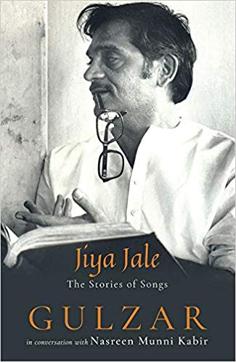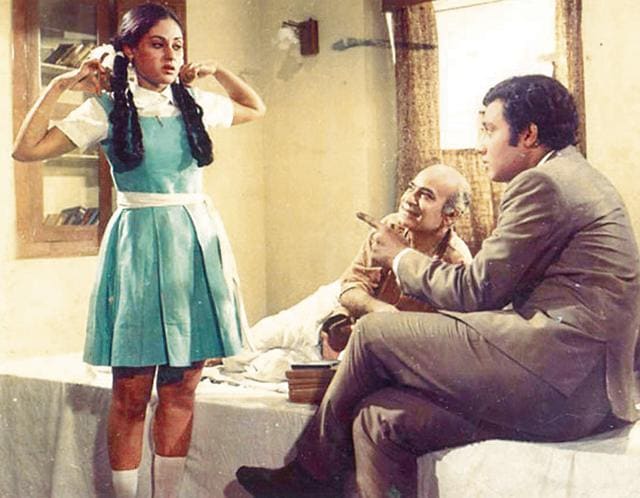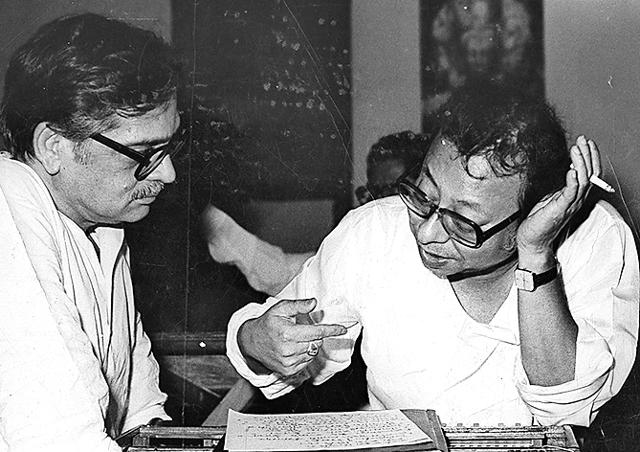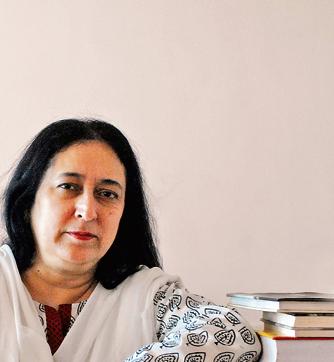Review: Jiya Jale; Gulzar in conversation with Nasreen Munni Kabir
An excellent book that treats the Hindi film song with the seriousness and respect it deserves

Millionaires and beggars are touched alike by the Hindi film lyric, that most democratic form of poetry. It whispers to the centre of our subcontinental selves, serving as the soundtrack to our romances, fiddling with our emotional faucets. When confronted with hurtful gossip, Anand Bakshi’s lyrics to Kuch toh log kahenge from Amar Prem run on our personal subtitle tracks; during crises, Gulzar’s lines from Masoom’s Tujhse naaraz nahi zindagi: “Jeene ke liye socha hi nahin dard sambhaalne honge” glow in the theatre of our minds; Shailendra’s Kisi ki muskurahaton pe ho nisar from Anari might play during expansive times; and we marvel at how perfectly the urge to hold on to fleeting youth is captured in Javed Akhtar’s Dil chahta hai kabhi na beete chamkile din. Inexplicably, this is the case even when we aren’t native speakers of Hindustani, coming to it only as the language of the textbook or the street, encountering it through the deliberate act of watching a film, or catching snatches of songs as we channel surf.
Given the great popularity of the Hindi film song and that its practitioners are accomplished poets, it is strange that a larger, more solid body of critical writing hasn’t been devoted to this exceptional art form. Perhaps this has to do with our linguistic confusion and the fact that while, today, many of those who make Hindi films and their multiplex audiences too are literate in English, they continue to dream in Hindi, in which they are increasingly less fluent. It’s a thesis that needs to be better articulated but her own understanding of this peculiar condition seems to give an added vitality to Nasreen Munni Kabir’s conversation with Gulzar in Jiya Jale; The Stories of Songs.

The discussion about the school prayer in Guddi – Humko Mann Ki Shakti Dena – which many assume is a traditional bhajan written by a poet made anonymous by the passing centuries, and the one on Chaiyya Chaiyya from Dil Se are in-depth and informative. While the listener might have originally reacted entirely at the emotional level to Chaiyya Chaiyya, the lyrics, rendered in the book in the Roman alphabet, accompanied by an English translation, add an intellectual layer by revealing the poet’s process and illuminating intended meanings. The reader learns, after years of wondering, that the electrifying Gulposh kabhi itraaye kahin/Mehke to nazar aa jaaye kahin (The One draped in flowers will come into sight as the fragrance spreads) is a spiritual reference, a reference to God. These line translations also propel the reader to take frequent breaks to listen to the songs, and to enjoy afresh the gift of Gulzar’s linguistic inventiveness.
As a bridge figure who has worked successfully over 55 years -- His first composition was Mora gora ang lei le in Bandini (1963) -- with many generations of creative professionals in the Hindi film industry and whose work, like Akhtar’s, continues to be sought after, Gulzar is also a great repository of anecdotes:

NMK: Was there anything unexpected that you’ve observed about the personalities of the music composers with whom you have worked?
G: I noticed how much they enjoyed cooking… I’d like to first talk about how fascinating it was to watch Madan Mohanji in the kitchen. He would hold a glass of whisky in one hand and, with the other hand, he stirred some mutton in a pan. He hummed a tune throughout the stirring and frying – ti ti tee… And if the mutton curry needed a bit of water, because it had started to stick to the bottom of the pan - in went his whisky! (both laugh). He was a terrific cook and cooked with great style…
Then there was RD Burman. Pancham was a mad cook! Ashaji and he would have cooking contests… Another person who was passionate about cooking was Salil Chowdhury. He would make the most delicious chicken curry and invite friends over… I have always wanted to understand why great musicians have this passion for cooking.
There is much to please the literary nerd-with-a-passion-for-Hindi-film-music. “If certain images come to you while working on a song, you tell the composer. So he can use an appropriate instrument. Creating songs is teamwork. It is not the result of one man’s input. That is the beauty of cinema – working the scenes out together,” Gulzar says adding “Don’t forget the film song has to also make some impact outside the film itself. This makes the song popular. It has to be specific to the character yet universal, so it can stir the emotions of many.”
Kabir’s views about the sad disappearance of lip-sync songs and her quest for the right English word - the book reveals she is often called upon to provide English subtitles to difficult Hindi film songs - further enriches the conversation. The section on the O humdum song from Guru is especially good:
NMK: In O humdum, you use the word ‘beswaadi’. I don’t think I’ve heard that word in a song before.
G: No, I haven’t either (smiles). But I liked the idea of a tasteless night. You said you wanted to use ‘without flavour’? Maybe it works better than tasteless. When you translate ‘sautan’ you can say ‘rival’.
NMK: I might go with ‘mistress’ for ‘sautan’.
Elsewhere, she talks of substituting ‘keekar’ with cactus.

The exchange also reveals some surprising things about Gulzar. For someone who continues to be relevant, his aversion to remixes of old songs is puzzling: “One must respect the past, respect the work and creators of that work. In the same way, if you changed the instruments of Hemant Kumar used in his songs, you would take away the musical history of those times... That is why I am against remixing and the colourization of black and white classics. The arts are a history of a civilization.” Remixes of Shakespeare by Vishal Bharadwaj are, thankfully, not verboten. Incidentally, Bharadwaj is adept at the Sanchari, a “form of poetry that does not come straight from mukhda to antara – which is the pattern the film song has traditionally followed…”
Read more: Excerpt | Conversations With Waheeda Rehman
Kabir has done similar conversation books before but Jiya Jale is different. It marks the birth of a new genre -- the Hindi film songbook that combines anecdote, line translations, and serious discussion on craft and song vocabulary. Happily, it speaks simultaneously to our English medium exteriors and our exuberant vernacular inner selves.






